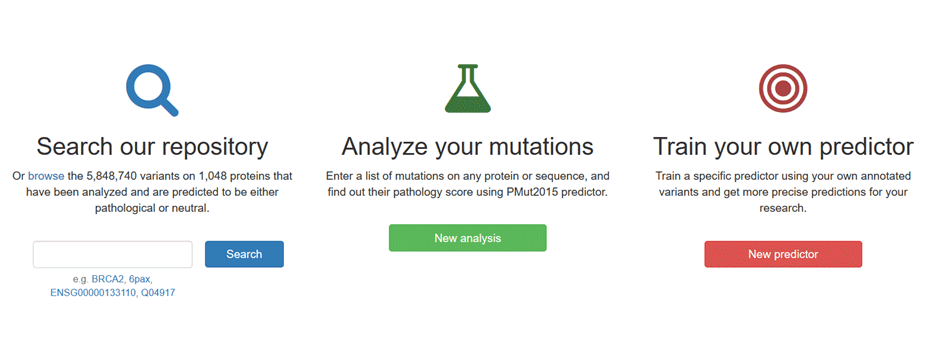
The understanding of the functional consequences of genetic variants is key to evaluate their influence in diseases, and their possible implication for diagnosis or the design of treatment.
Summary
Genomic variants are one of the objects of study of large biomedical projects. Initiatives like TGCA, or ICGC catalogues a large number of somatic variants found in cancer development that add to the known variants related to genetic diseases. The increasing availability of cheap DNA sequencing allow to envision the possibility to obtain personal genomes, allowing the adaptation of health care to individual features. The understanding of the functional consequences of such genetic variants is key to evaluate their influence in diseases, and their possible implication for diagnosis or the design of treatment. Tools available un this field include PMut, a well-known predictor for pathological effects of protein sequence variants. PMut is being updated and extended to include new patterns of conservation, and introducing protein flexibility and dynamics features.
Objectives
Evaluate the usability of flexibility and dynamics properties of proteins as a tool for predicting functional consequences of sequence variants in proteins.

